Metropolitan Hilarion: The Lord always grants to us the opportunity to display our talents
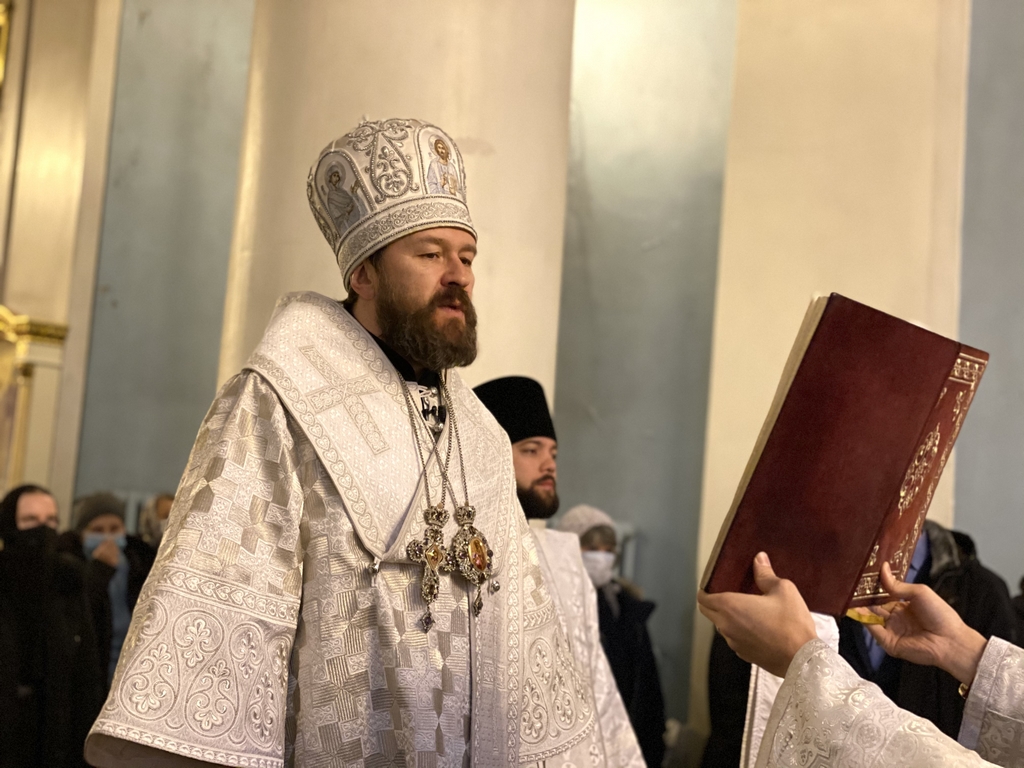
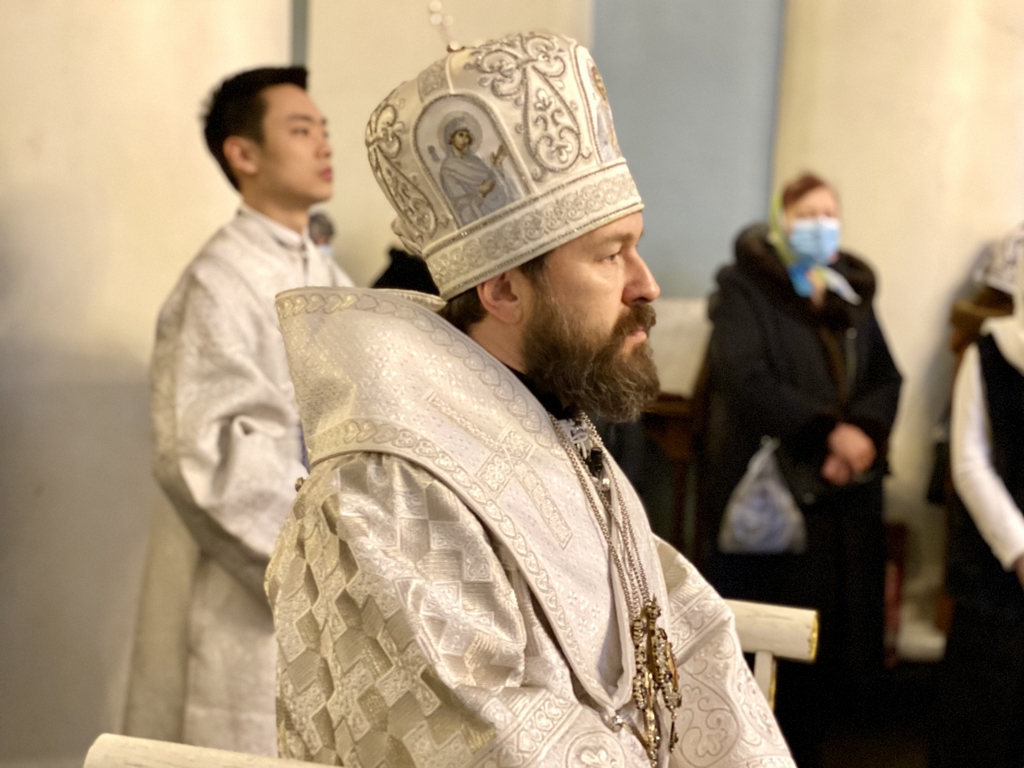
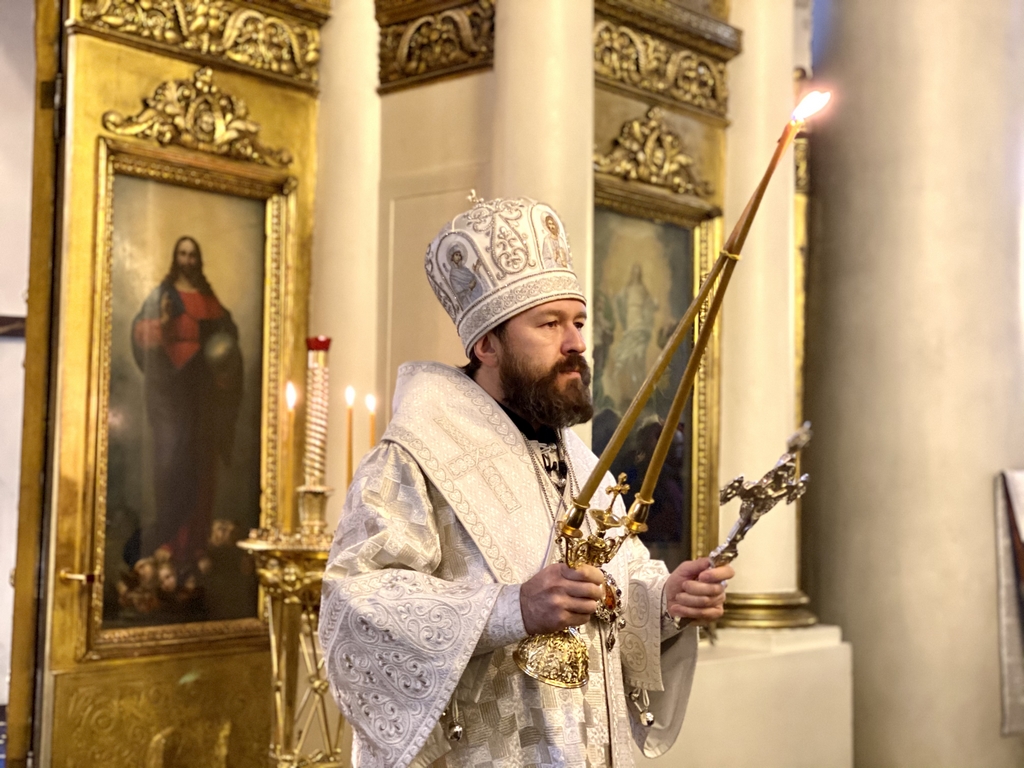
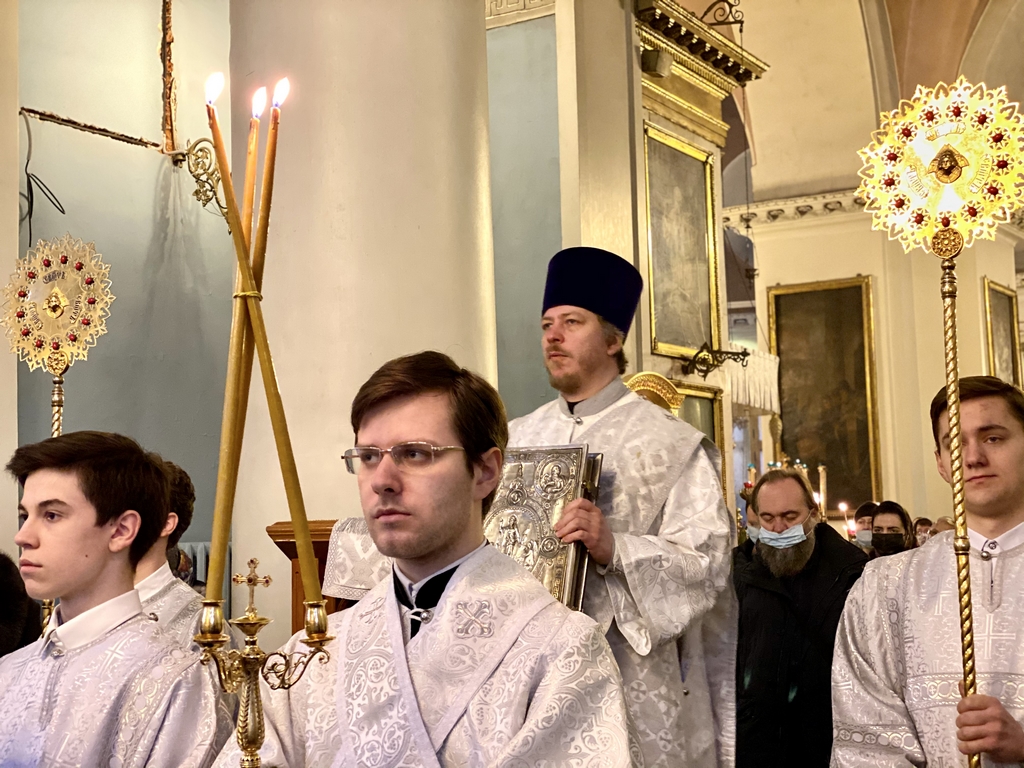
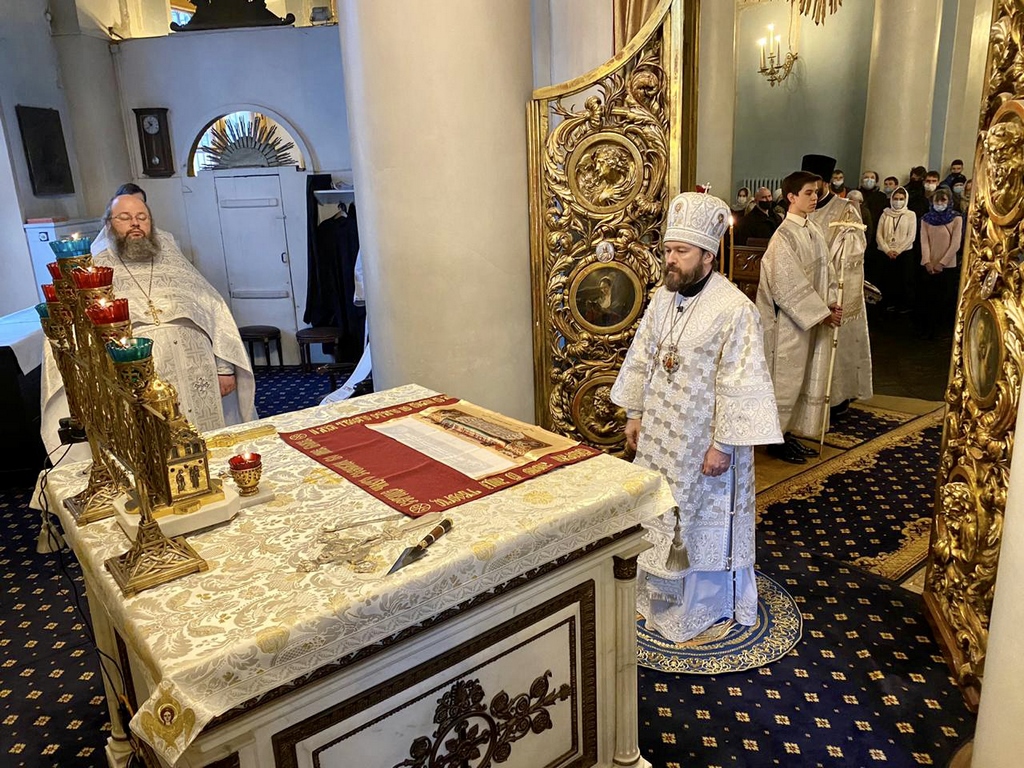
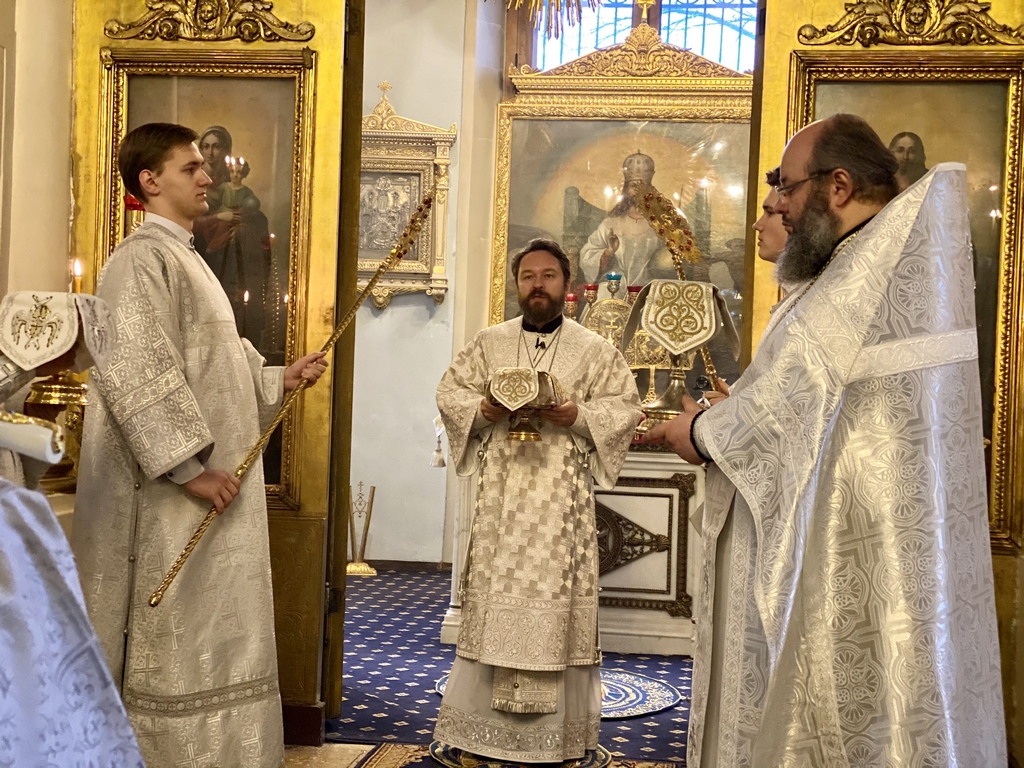
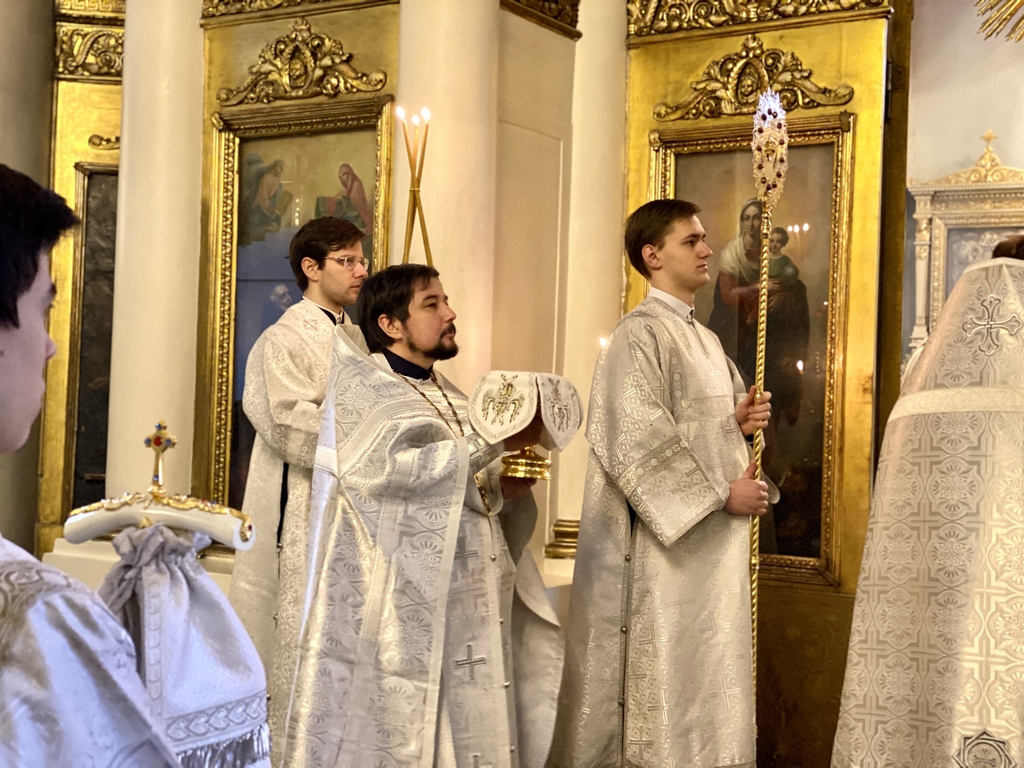
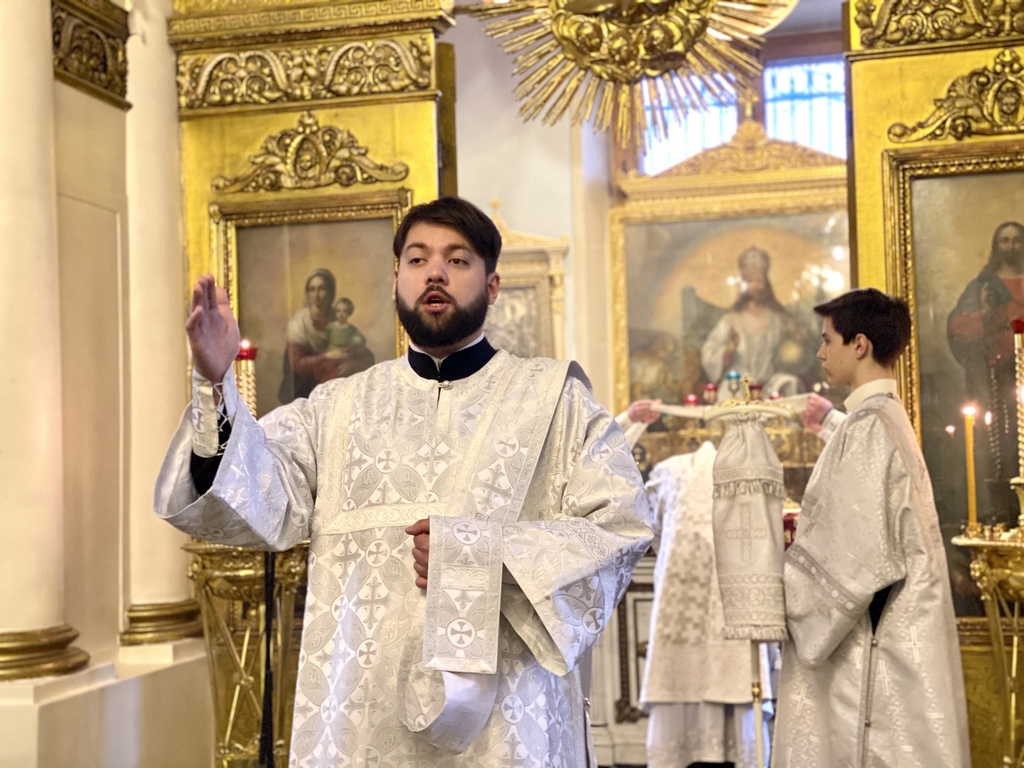
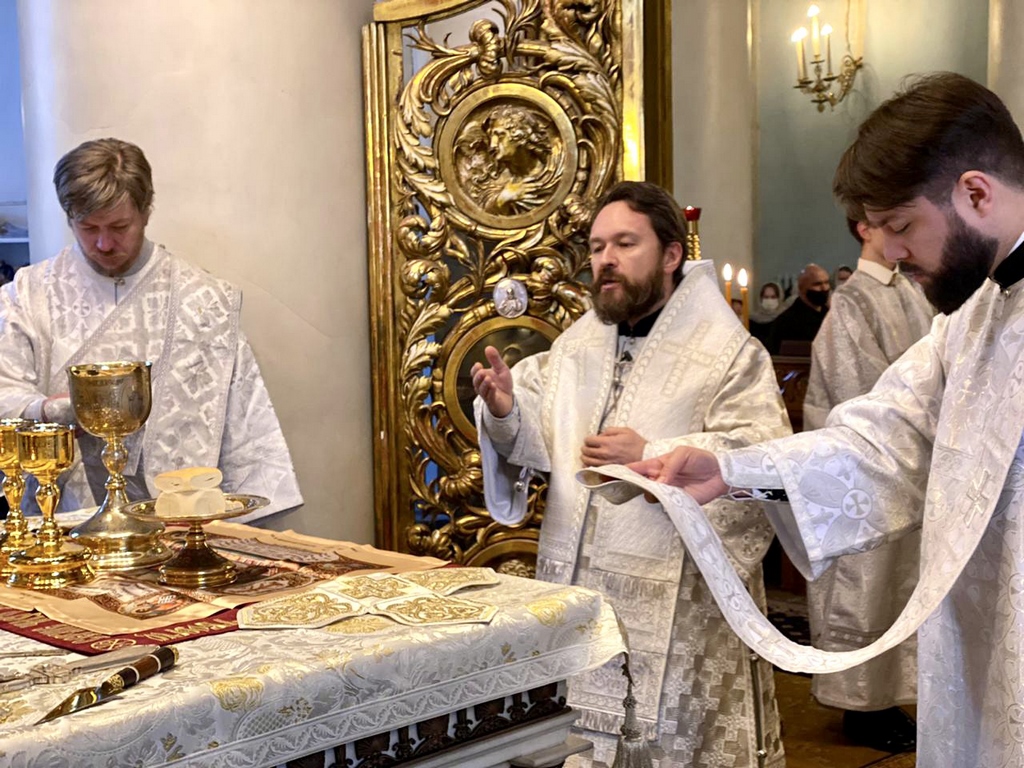
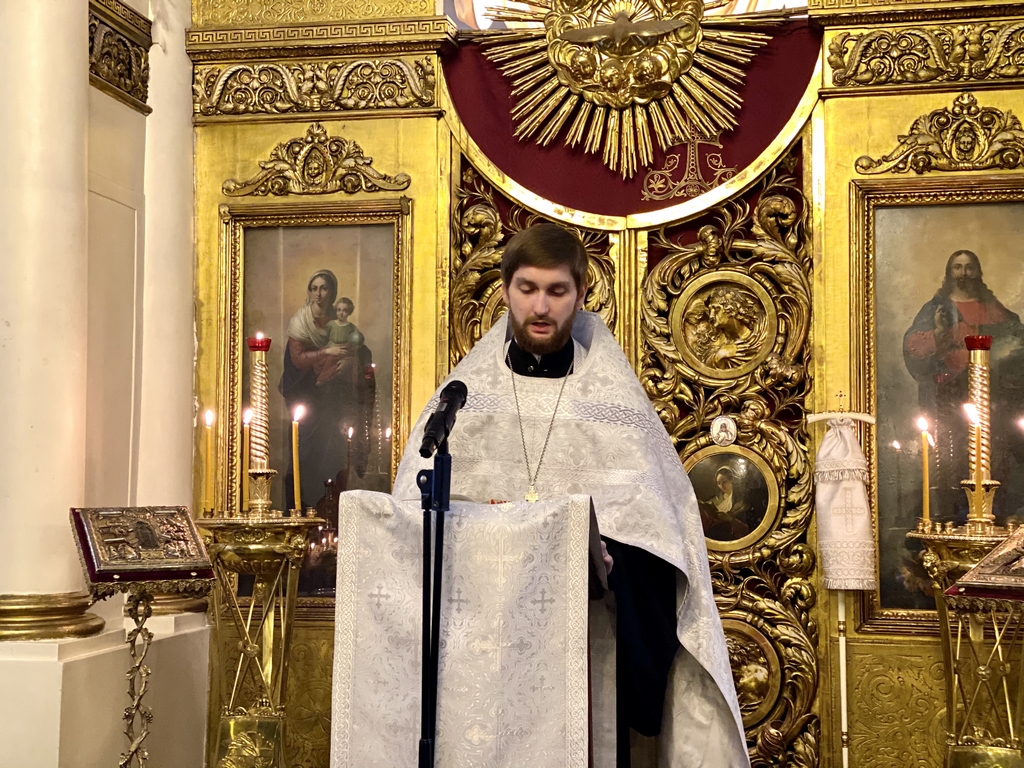
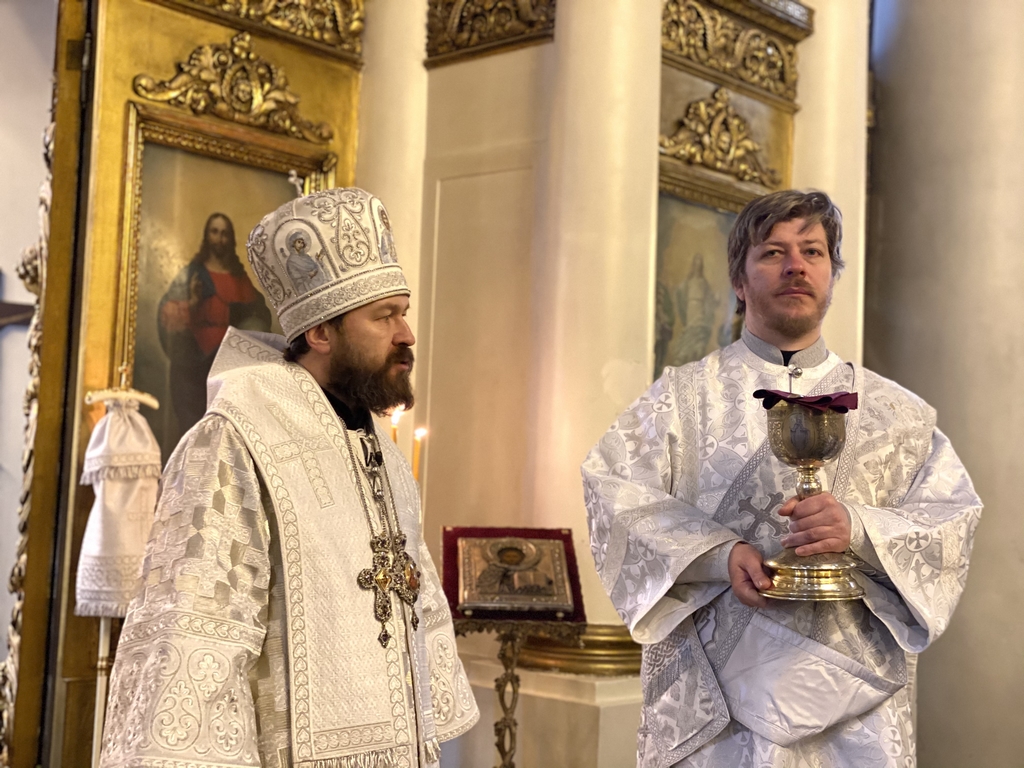
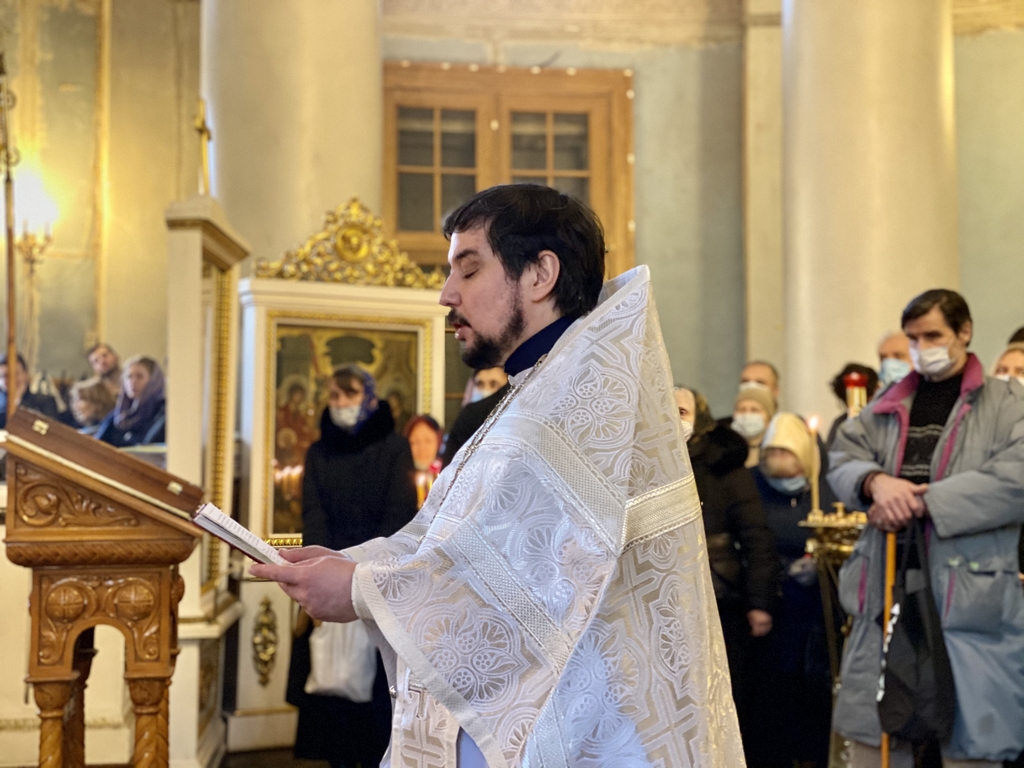
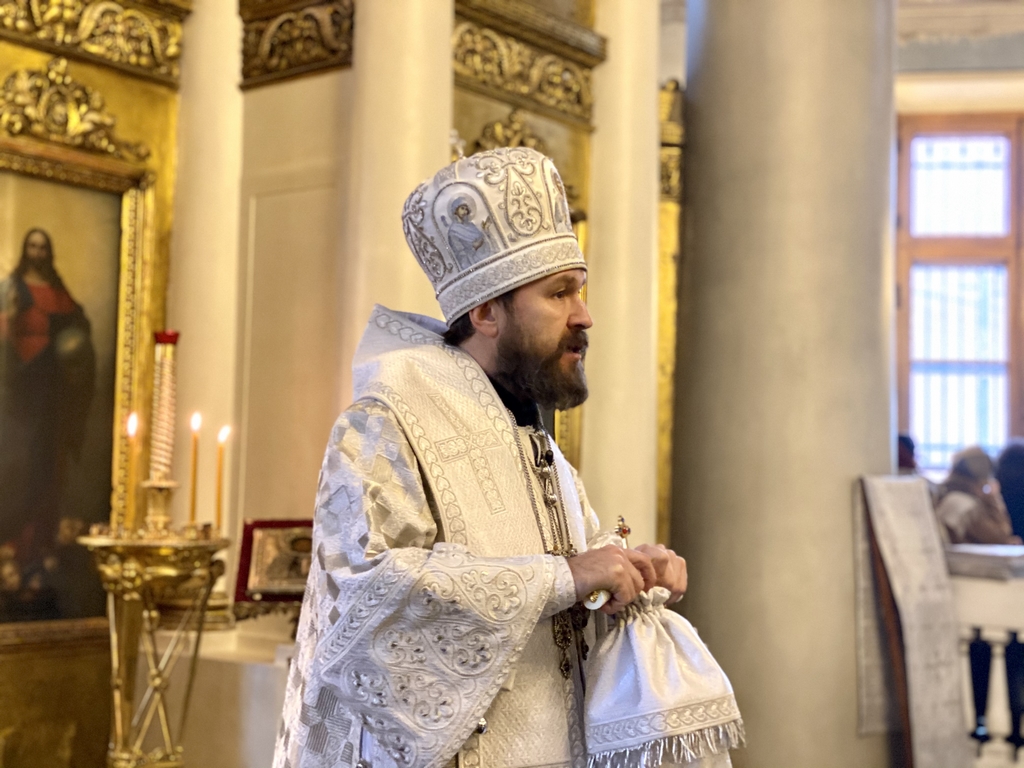
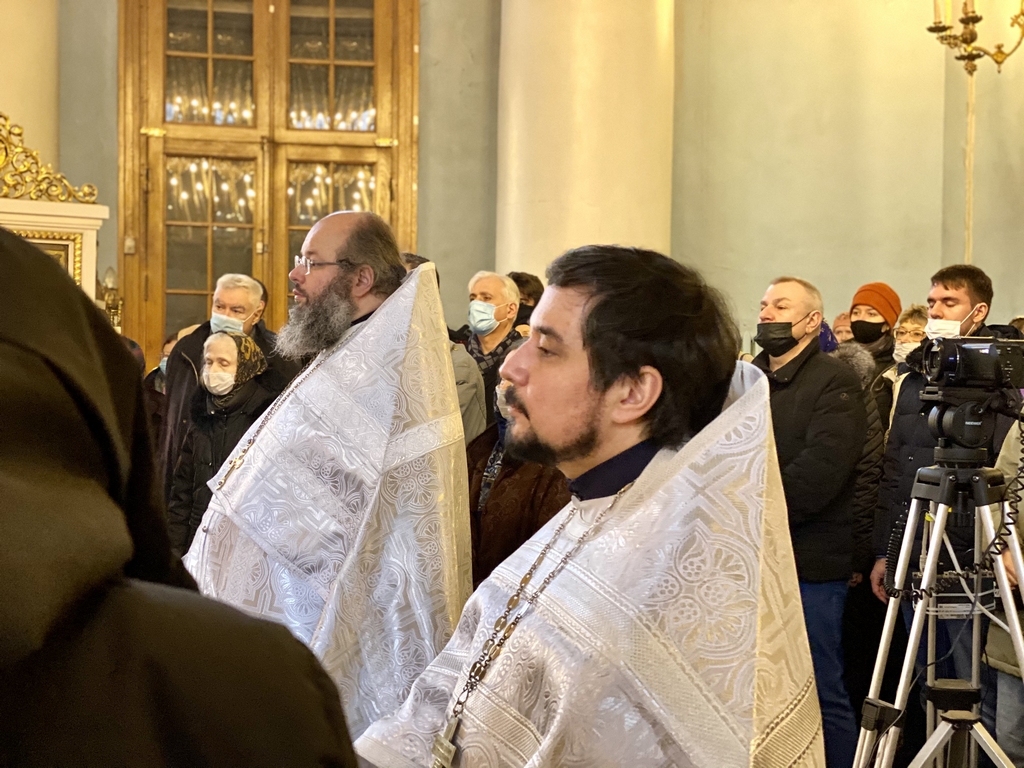
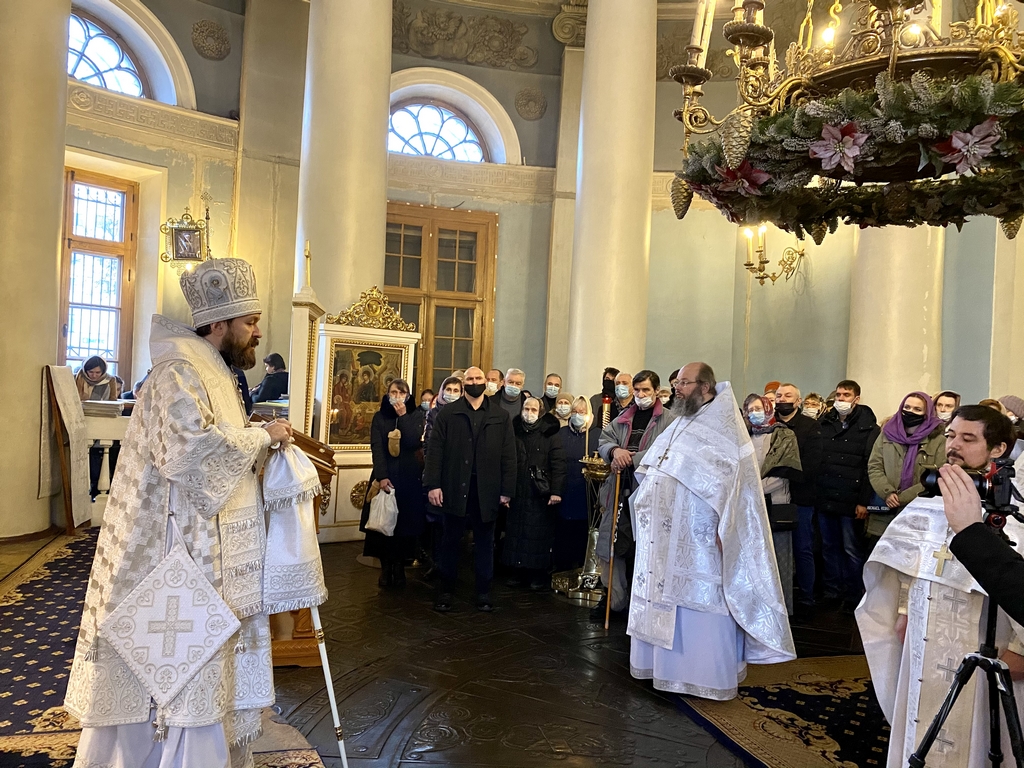
On 24th January 2021, on the 33rd Sunday after Pentecost and after Theophany, the chairman of the Department of External Church Relations the metropolitan of Volokolamsk Hilarion celebrated the Divine Liturgy in the Moscow Church of the ‘Joy of All Afflicted’ Icon of the Mother of God on Bolshaya Ordynka St.
Concelebrating with the bishop were the church’s clergy.
At the Litany of Fervent Supplication prayers were offered up for deliverance from the coronavirus infection.
After the Litany of Fervent Supplication metropolitan Hilarion read the prayer for the time of devastating pestilence.
At the end of the Liturgy metropolitan Hilarion gave the following sermon:
“In the name of the Father, and of the Son, and of the Holy Spirit. Amen.
Together we confess our faith in the One God glorified in Three Persons, the Trinity One in Essence and Undivided. The holy fathers tell us that the three Persons of the Holy Trinity – the Father, the Son and the Holy Spirit – are equal among themselves. It is wrong to say that one Person is subject to another. We know that God the Father is unoriginate, yet God the Son is born of the Father, born not in time but in eternity. The Holy Spirit proceeds from the Father, but how birth is differentiated from procession we do not know.
The holy Church teaches us that the Persons of the Holy Trinity abide in unity, in complete harmony and perfect love. The Son of God eternally fulfills the will of God the Father – not because he is less than God the Father, not because he is in full subjugation to God the Father, but because Divine Love acts in this way: God commands and the Son obeys.
In his human nature God the Son is less than God the Father in his divine nature. This is why the Son of God says to us that “the Father is greater than I” (Jn 14.28). But according to his divine nature the Son of God is no less great than God the Father, and the Holy Spirit in no way concedes to either the Father or the Son.
The holy Church has revealed this mystery to us so that we may worship the One God, glorified and adored in the Trinity.
When we turn to the earthly life of the Lord Jesus Christ as it is set out in by the four gospel writers, from this story we learn that the Son of God became the Son of Man: the One who is equal to the Father in his divinity became consubstantial with us in his humanity, he assumed our human nature so that he may save us. And it was in this that there was manifested not only God’s love for us, but also God’s humility. St. Isaac the Syrian says: “Humility is a divine garment.” It is into this garment that the Word which became man was cloaked when he took upon himself human flesh.
The pre-eternal God took upon himself the flesh of earthly temporal human beings, the very flesh which we bear. And his humility was revealed not only in that he took upon himself human flesh, but also in that he manifested himself by becoming a human person.
We recently heard how Christ came to the river Jordan to receive baptism from John. He stood alongside the other people who had also come to the Jordan to cleanse themselves of sin, to be purified of all defilement, to repent for all of the evil things they had done, for all that which was not in accordance with God’s commandments.
Was it right that God, who is without sin and who had become a human person, should assume a place alongside sinners? Yet God found it fitting to assume a place among these people, to approach John the Baptist and receive from him baptism in the same manner as the other people who had need of purification from their sins.
When John objected, the Lord replied: “Let it be so now; for it is proper for us in this way to fufil all righteousness” (Matt 3.15). Then John, knowing that before him stood Christ for whom he had prepared the way and the straps of whose sandals he was not worthy to unloose, admits him to baptism, lays his hand upon him and plunges him into the waters of the Jordan. But when the Lord Jesus Christ emerged from the water, people heard the voice of God the Father saying: “This is my Son, the Beloved, with whom I am well pleased” (Matt 3.17).
But what happened next? We hear of this in today’s gospel reading. After receiving baptism, our Lord Jesus Christ did not immediately go out and preach. Christ begins his preaching after John concludes his. When John the Baptist was incarcerated in prison and his word ceased to be heard and when the call to repent for the kingdom of heaven is near (Matt 4.17) which God had placed on his lips ceased to resound, it was only then that our Lord Jesus Christ begin his public preaching. And this call – “Repent, for the kingdom of heaven is near” – was now to heard from the lips of the Son of God, who in his lowliness had taken human flesh upon himself and who had continued the prophet’s ministry who was now in prison. The words with which the John the Baptist’s preaching concluded – “Repent, for the kingdom of heaven is near” – heralded the beginning of Jesus Christ’s preaching.
The Lord came into this world not only in order to give life to the world, but also to continue the work of the Old Testament prophets. Although he was more than a prophet, for he was the Son of God, his mission was at the same time the mission of a prophet. He built not upon sand but upon a foundation, and this foundation was the preaching of a prophet. And he built up a new religion, his good news, his gospel not from nothing but on the foundation that had been laid for more than a thousand years before him.
This is why our Scriptures contain not only the gospel of the Lord Jesus Christ, the letters of the holy apostles, but also the entire pre-history of the New Testament which is the Old Testament, all of the sayings of the prophets, the entire history of the chosen people of Israel which we view through the prism of the New Testament revelation. We read the entire Old Testament as a prophecy and prototype of all that happened in the New Testament. All the prophecies which speak of the Son of God we view as relating to the Lord Jesus Christ – to God who has come in the flesh.
Todays reading from the apostolic letters tells us that we are called to imitate the Lord in his humility, which was made manifest by the incarnate God. As St. Paul reminds us in his letter to the Ephesians, every person has his own ministry in the Church: some are given by God the ministry of prophecy, others the ministry of an apostle, others yet the ministry of a proclaimer of the good news; to others yet there is given another ministry. There is no one in the Church who does not have a ministry to which he has been ordained by God. This applies not only to those who enjoy hierarchal rank in the Church – the bishops, priests and deacons – but also to any person, for everyone has his own ministry and his own gift.
We know, for example, that in the early Church there were people who spoke in tongues, that is, they uttered unintelligible words, being inspired by the Holy Spirit, and it is quite possible that their hearts and minds were sustained by these words, yet those around could not understand them. This is why St. Paul writes: “Therefore, one who speaks in a tongue should pray for the power to interpret” (1 Cor 14.13). But because there are different gifts and the Holy Spirit endows each person with a particular gift, it often happened that one was a prophet, another spoke in tongues, while another interpreted what the prophet said.
Thus too the Church is ordered in our time. Every person has his own gifts. God has given to a bishop the privilege of serving before the altar of God and celebrating the divine mysteries, he has granted to him the possibility of ordaining others to holy orders. God has granted to a priest the same opportunities, apart from the right to ordain clerics. The Lord has granted to the deacons the chance to stand before the altar of God and participate in the Divine Liturgy, helping the priest in celebrating, but he has no right to celebrate independently.
God has granted to some the gift of being as theologian, and this person, although a layperson, studies and interprets Scripture, writes theological works and it is through these works that Orthodox Christians are sustained. God has granted to some a good voice and musical abilities, and they are called by God and the Church to participate in the choir in order to praise God with their voice. To others he has given different gifts – each has his or her own. And the Church calls us to give thanks to God for these gifts and not bury them in the ground. If we have certain abilities, certain talents or opportunities, we use them to adorn the holy Church through our labours and talents.
Not every one has been given the gift of hearing music or musical abilities. Not everyone, for example, has the ability of an artist. Not everyone can climb a scaffold to adorn the walls of a church because for this a special skill and application is needed. It is indeed a great labour. Yet to those whom it has been given, may they never neglect this gift.
Every person to whom God has given particular gifts is called upon to show them to the world through serving the Church. At the same time, we should never envy others their gifts. If God has endowed you with the gift of using an artist’s brush to perform wonders, then you should not in the least be concerned that you do not have the gift of perfect pitch or that you cannot sing in the choir. And if God has given you the chance to study the Scriptures and theologize, then you should never envy those who have different gifts, for example, of being priests.
God appoints every person to his place at the right time. Each of us God has brought into this world for a specific time and period – no later or earlier. He has granted this opportunity to us – here and now to reveal what we can do in that ministry which he has ordained us to.
This why the holy Church calls upon us never to strive for that which is not given to us. Never to envy others, never to seek a higher position. Never to think: “If I had these chances, then I would be able to demonstrate my talents and gifts to the full.” Demonstrate what you have now when you have the opportunities given to you by God. If you demonstrate what you have, then you will give all your strength to the ministry that God has laid upon you, and if it is pleasing to God, he will then give you a greater ministry. And if it is not befitting to him, then rejoice in the fact that God has called you into the Church and laid upon you those duties and responsibilities that you bear.
This what the example of the Lord Jesus Christ teaches us, and the example of the holy apostle Paul, and the teachings which he has left to us.
Let us ask of the Lord that he grant to us the chance to realize our talents, our abilities not for our own fame and glory, but for the glory of God and for the glory of his holy Church. Amen.
I congratulate you all on the feast day. May the Lord preserve you all.
